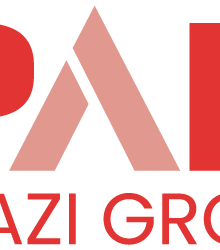In the realm of financial planning, inflation emerges as an undeniable force, steadily eroding the value of money over time. To comprehend its implications on financial decisions, a deeper understanding is imperative. While the volatility of high inflation may seem beyond control, gaining insight can empower individuals to make informed choices safeguarding their long-term goals.
Defining Inflation: Beyond mere price hikes, inflation denotes a general increase in the cost of goods and services. Authorities aim for an annual inflation rate of approximately 2% to maintain economic stability and bolster employment prospects. However, excessive inflation can strain everyday budgets, while inadequate inflation poses hurdles to economic recovery.
Impact of High Inflation on Personal Finances:
1. Purchasing Power: Your money’s ability to procure goods and services, termed purchasing power, diminishes as prices escalate due to inflation. Monitoring purchasing power aids in gauging the extent to which your money can stretch, informing decisions on spending and saving.
2. Increased Costs: Escalating prices result in increased costs, compelling individuals to allocate more funds for necessities previously obtained at lower prices. Adjusting budgets becomes essential to accommodate these rising expenses.
3. Reduced Savings: Inflation-induced price hikes can impede savings efforts, as higher expenditures leave fewer resources available for setting aside. Awareness of this phenomenon is crucial for prudent financial management.
Managing the Impact of Inflation:
1. Strategic Planning: Formulate a comprehensive budget outlining current and future expenses. Adhering to this budget curtails impulse spending and ensures financial stability.
2. Diversified Income: Explore avenues to augment income streams, whether through part-time employment, online gigs, or entrepreneurial endeavors. Diversified income sources enhance financial resilience against inflationary pressures.
3. Expense Optimization: Assess expenditure patterns to distinguish between essential and discretionary expenses. Prioritize essential needs during periods of financial constraint, fostering a balanced approach to spending.
4. Investment Initiatives: Consider allocating surplus funds into investments capable of outpacing inflation. Consultation with financial experts facilitates informed decisions aligned with risk tolerance and financial goals.
Final Thoughts: While reminiscing about more affordable times is natural, confronting inflation demands proactive measures. By embracing prudent spending habits, exploring additional income sources, and making strategic investment choices, individuals can navigate the challenges posed by inflation, safeguarding both current financial stability and future aspirations.

